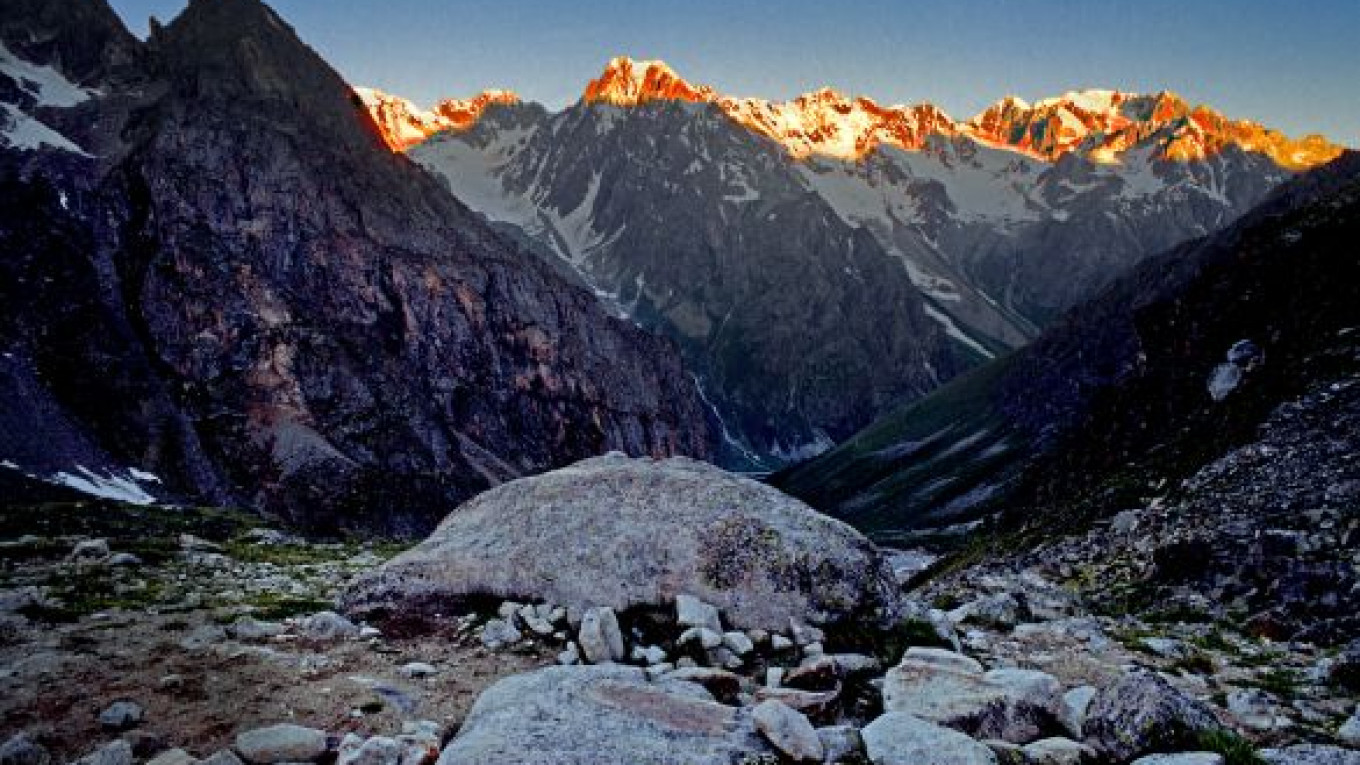The Altai republic and Chechnya have the cleanest economies in Russia, according to a new index released Tuesday.
The index, put together by WWF Russia and state-owned news agency RIA-Novosti with the support of the Russian Geographic Society, is one of the first attempts to combine environmental threat factors, economic indicators like GDP and industrial development indexes.
“GDP is a very poor indicator for a country with large natural capital and serious social problems, said Sergei Bobylev, vice president of the Center for Environmental Policy, explaining the reasoning behind the new index.
The index purports to bring together key metrics showing the economic, environmental and social conditions in each of the country’s 83 regions.
“Our main task was to answer the question ‘Where is it good to live in Russia?’” Sergei Shoigu, the Moscow region governor and Russian Geographic Society president, said as he presented the project.
“In the future, this index could have a serious impact on decision-making, including in the federal government and large companies,” he added. “[It provides] a basis for the first stages of decision-making: Where are there resources for placing production facilities? Where is it not too late to create protected areas?”
The methodology added up indicators ranging from growth of tree cover and protected areas to emissions from industry and vehicles, and investment in “human capital,” spending on education, health care and sports. The resulting index numbers showed some surprising results.
The top of the list is dominated by what WWF described as “agro-industrial regions.” The remote Altai republic, famed for its wilderness, came in first place, followed by Chechnya, the Jewish autonomous region and Shoigu’s native Tyva republic. The only “industrial” region to make the top 10 was Tver.
The bottom of the list is dominated by the country’s biggest oil-producing regions. The Nenets autonomous district is considered the least “green,” followed by Khanty-Mansiisk and Sakhalin. Also in the bottom 10 are the Tyumen region, the Yamal-Nenets autonomous region, the heavily industrialized Orenburg region and the Chukotka autonomous district.
Shoigu’s Moscow region came in 34th. The city of Moscow was ranked in 30th place.
Cynics were quick to point out that the “cleanest” economies are also among the poorest and least developed, a point conceded by Yevgeny Schwartz, director of conservation policy for WWF Russia.
Chechnya’s high ranking is largely due to high spending on health, education and sports, for example. But 90 percent of the republic’s budget comes from federal subsidies, and its leading position should not “give the illusion that Chechnya is a green paradise,” said a WWF spokeswoman.
But experts are concerned about just how reliable the data is. All of the figures fed into the index come from publicly available information compiled by the State Statistics Service. That means the reasoning is open to scrutiny and can be cross-checked by anyone, but it also raises the question of how reliable those statistics are in the first place.
As the WWF spokeswoman speculated, it is quite possible that much of Chechnya’s human investment budget is spent on cars for its leader, Ramzan Kadyrov.
“Land [parcels] can be turned into protected areas, but how well they are guarded is quite another question,” Schwartz said. “We are a ‘hostage’ of the official figures in some cases.”
In an effort to continuously validate the rankings, RIA-Novosti, which co-produced the study, has launched a parallel “people’s rating,” in which each district of each region will be rated by the number of relevant complaints .
As of Wednesday afternoon, just one complaint had been posted from Moscow, protesting the felling of trees near Troitsk.
Two people had posted complaints in the Moscow region, one about bark beetles attacking trees in Mytishchi, and another about styrene and formaldehyde emissions from a heating station in Serpukhov.
Natalya Znamensksya, the editor of Zhukovsky Vesti and a campaigner against forest clearance near the Moscow region town, said she did not take the project seriously and doubted it would affect policy.
“If there were fair elections and our municipal officials actually had a mandate, there would be no need for some website to tell them what the people are thinking,” she said.
Shoigu put a halt to the project to build a road through woodland near Zhukovsky when he became Moscow region governor, but Znamenskaya said new illegal building work had started there Wednesday morning.
A Message from The Moscow Times:
Dear readers,
We are facing unprecedented challenges. Russia's Prosecutor General's Office has designated The Moscow Times as an "undesirable" organization, criminalizing our work and putting our staff at risk of prosecution. This follows our earlier unjust labeling as a "foreign agent."
These actions are direct attempts to silence independent journalism in Russia. The authorities claim our work "discredits the decisions of the Russian leadership." We see things differently: we strive to provide accurate, unbiased reporting on Russia.
We, the journalists of The Moscow Times, refuse to be silenced. But to continue our work, we need your help.
Your support, no matter how small, makes a world of difference. If you can, please support us monthly starting from just $2. It's quick to set up, and every contribution makes a significant impact.
By supporting The Moscow Times, you're defending open, independent journalism in the face of repression. Thank you for standing with us.
Remind me later.


